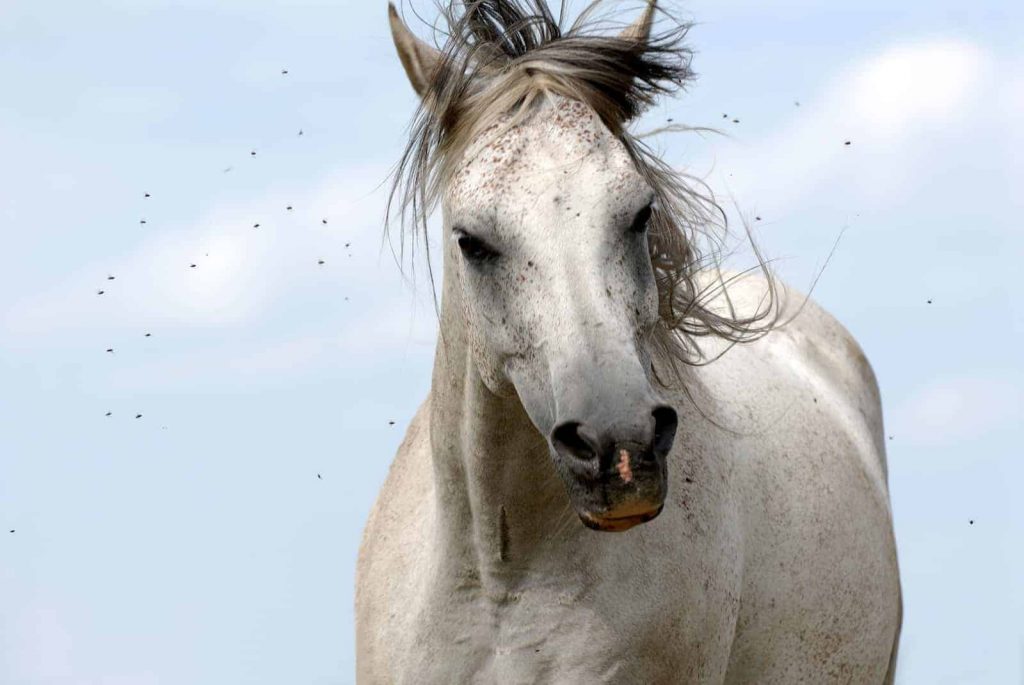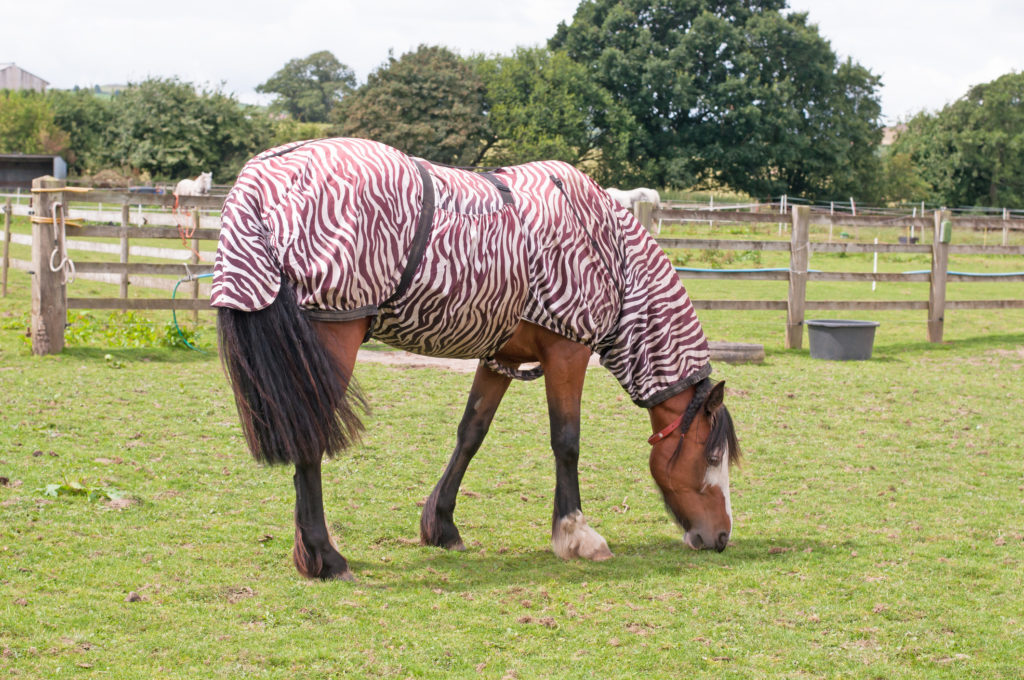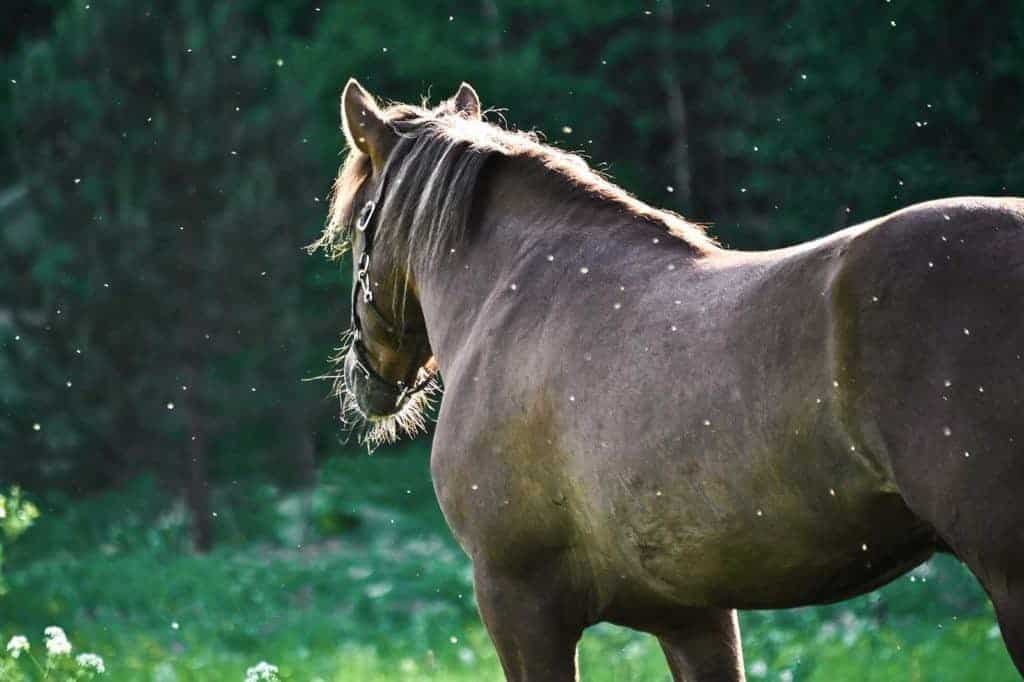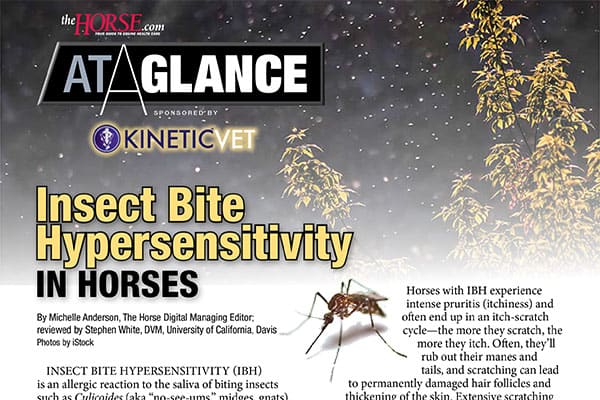
Get a Jump-Start on Fly Season
Practicing smart insect control tactics year-round can help you keep populations under control.

Practicing smart insect control tactics year-round can help you keep populations under control.

The key to keeping your allergy-prone horse comfortable is figuring out the causes of his reactions and avoiding them. Learn more about allergic reactions in horses with this step-by-step visual guide.

Insect-bite hypersensitivity can become a serious issue for horses that react to fly and midge bites.

Follow these steps to prevent disease spread on your farm.

Is my horse at risk of catching pigeon fever from another horse at my trainer’s barn?

The guidelines can help veterinarians make a diagnosis, recognize clinical signs and risk factors, and provide treatment.

An overactive immune system, environmental factors, genetics, and exposure all contribute to equine allergies.

Find out why wasps might be more aggressive in late summer and how to deter them from moving in to your horse barn.

Veterinary intervention can make itchy horses more comfortable and keep allergies under control. Sponsored by Kinetic Vet.

Do you have an itchy horse? Learn more about insect bite hypersensitivity with our visual guide.

Help keep your horse healthy and get the most out of the coming months by increasing your understanding of—and watching for—five common health conditions seen during the summer.

Find out what insects can spread equine infectious anemia from Dr. Angela Pelzel-McCluskey.

Learn about this difficult-to-manage allergic reaction to the saliva of biting insects in our visual guide.

Insect bite hypersensitivity is a lifelong condition, and affected horses will always need management and/or therapy. But often a patient can be clinical-sign-free with low exposure to inciting antigens.

Do you have an itchy horse? We have help! Check out our special report on sweet itch. Sponsored by Kinetic Vet.

If you’ve got a horse with insect bite hypersensitivity, midges might not be your only problem. Researchers found that IBH horses are more likely to develop allergic reactions elsewhere—specifically, in the breathing passages.
Stay on top of the most recent Horse Health news with
"*" indicates required fields